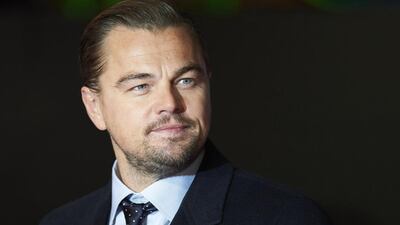World leaders gathering in the Swiss Alpine town of Davos for the annual meeting of the World Economic Forum (WEF) will hear that global climate change is the most serious enduring risk facing the world today, while large-scale involuntary migration is the most immediate.
Business leaders among the 2,500 attendees at the meeting, which starts on Wednesday, rate unemployment and energy prices as the biggest threats to economic and corporate health. Middle East executives also worry about the effects of terrorist attacks and interstate conflict.
These are the main findings of the WEF’s 2016 Global Risks Report, determined by surveying 750 of its leading thinkers, strategists and consultants.
The WEF report said: "After its presence in the top five most-impactful risks for the past three years, the failure of climate change mitigation and adaptation has risen to the top, and is perceived in 2016 as the most impactful risk for the years to come, ahead of weapons of mass destruction, ranking second, and water crises, ranking third. Large-scale involuntary migration was also rated among the top five for impact, as was severe energy price shock.
“The risk rated most likely was large-scale involuntary migration, with last year’s top scorer – interstate conflict with regional consequences – giving way to the environmental risks of extreme weather events and the failure of climate change mitigation and adaptation, and followed by major natural catastrophes,” it added.
The report was compiled before the onset of the global financial downturn this year. “It marks a forceful departure from past findings, as the risks about which we have been warning over the past decade are starting to manifest themselves in new, sometimes unexpected ways and harm people, institutions and economies,” the WEF said.
Some attendees believe financial and economic concerns will be the main preoccupation at Davos. Nouriel Roubini, a professor of economics at New York University's Stern School of Business, said in a pre-Davos article in Time magazine that the world was entering a "new abnormal" phase regarding growth, economic policy, inflation, key asset prices and financial markets".
The official theme of the 46th Davos meeting is “mastering the fourth industrial revolution”, which is the “fusion of technologies across the physical, digital and biological worlds”, said Klaus Schwab, the founder and executive chairman of the WEF.
More than 40 heads of state and government will attend the meeting, more than ever before, including a big delegation from the United States led by the vice president Joe Biden and secretary of state John Kerry.
Middle East regional security issues will be an important focus of the meeting, with foreign ministers expected from Saudi Arabia and Iran to take part in separate meetings regarding the recent outbreak of heightened tensions between them in Iraq, Syria and Yemen.
A big Saudi delegation, including the governor of the Saudi Arabian Monetary Agency Fahad Abdullah Al Mubarak, will tell WEF of the country’s ambitions for a national transformation plan in light of the low oil prices.
The UAE delegation includes Sultan Al Mansouri, the minister of economy; Mohammed Al Gergawi, the cabinet affairs minister; Essa Kazim, the governor and chairman of the Dubai International Financial Centre; and Mohammed Al Shaibani, the chief executive of the Investment Corporation of Dubai.
Local businessmen in attendance include Mohamed Alabbar, the chairman of Emaar, and Abdulaziz Al Ghurair, the chief executive of Mashreq Bank and head of the UAE Banks Federation.
Artists and cultural personalities expected to attend include the American Oscar-nominated actor Leonardo DiCaprio, the Chinese actress Yao Chen and the rock musicians Bono and Peter Gabriel.
fkane@thenational.ae
Follow The National's Business section on Twitter

